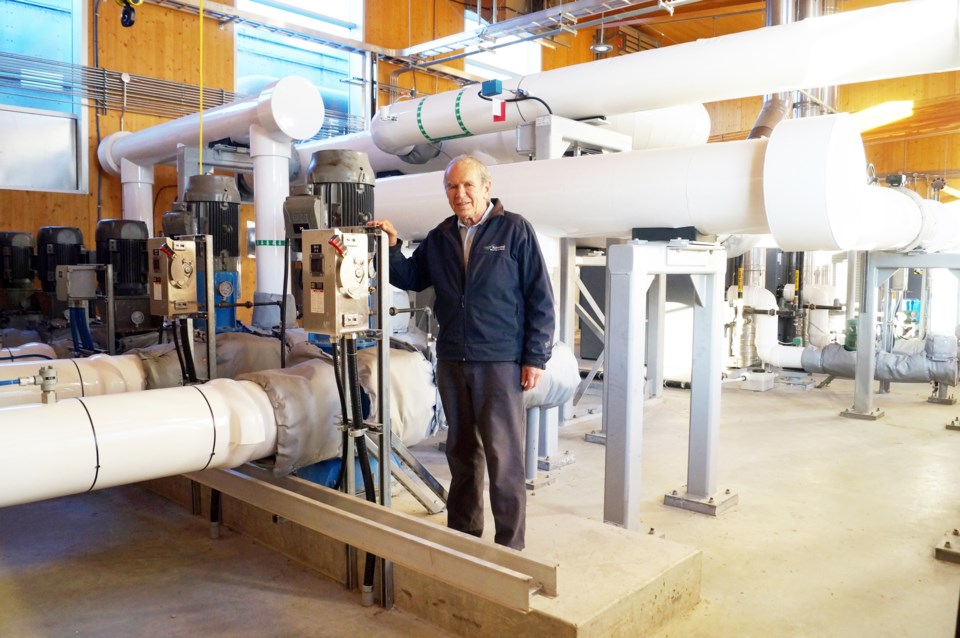What does a little-known, taxpayer-backed geothermal energy project in north Richmond have to do with the proposed Site C hydroelectric dam project?
According to Coun. Harold Steves, the geothermal energy being produced by the Lulu Island Energy Corporation (LIEC) is a glimpse of this province’s energy future and an example of why the over-budget mega dam is arguably not needed, as suggested by a recent review by the British Columbia Utilities Commission (BCUC), an independent regulatory agency of the provincial government.
“BC Hydro says they won’t need the power (from Site C) for 15 to 20 years. By that time, we’ll have a lot of these energy alternatives working and we won’t need Site C at all. And the alternatives will be even cheaper by that time,” said Steves.
Site C is an infrastructure project proposed and started by the past BC Liberal government, without a review from the BCUC.
Now, a post-construction review of the project by BCUC, published this month under the direction of the new NDP government, shows the initial $8.34 billion price tag now in excess of $10 billion, and potentially reaching over $12 billion.
Now, Premier John Horgan will need to decide whether to turf the project, which has already cost about $1.75 billion, or proceed.
Postponing the project is considered the most costly option.
Ending the project will cost another $1.8 billion, in addition to finding other sources of energy, according to BCUC.
One source of energy can be found in reclaiming energy sold to the U.S. from Columbia River dams, noted BCUC.
As well, “the (BCUC) Panel believes increasingly viable alternative energy sources such as wind, geothermal and industrial curtailment could provide similar benefits to ratepayers as the Site C project with an equal or lower Unit Energy Cost,” the review found.
Queue Richmond’s geothermal ambitions.
LIEC is a subsidiary of the City of Richmond, which invested nearly $27 million in the Alexandra District Energy Utility (ADEU) — a 3,400-metre network of pipes beneath a West Cambie field on Odlin Road — to power 3,100 new residential units, a temple and a WalMart-anchored shopping centre, with 19 megawatts of geothermal energy.
At ADEU, water and air is cooled underground in the summer and heated in the same pipes during the winter. Users pay LIEC rates set at or below existing BC Hydro rates.
Dividends paid to the city from LIEC over the next 17 years are expected to pay off the investment.
Steves said if Site C is built, rates are likely to go up. This would allow LIEC to charge even more and pay off the investment faster. However, Steves said his preference is to keep rates lower than Hydro to show people district energy is more efficient.
Steves noted Richmond’s geothermal projects also create full-time, local jobs. Reproducing district energy in other municipalities should more than offset any temporary and permanent job losses from Site C cancellation, Steves argues.
Steves added a regional solar energy policy can power old and new developments, including electric vehicles and household appliances.
But the councillor continues to face opposition from the BC Liberal camp.
Richmond-Queensborough MLA Jas Johal, a former LNG lobbyist and spokesperson, said more hydroelectricity is needed, even if the province were to tap into more renewables, which he supports regardless.
“To arbitrarily shut down a clean energy source because of what we can do with geothermal would be naïve,” said Johal, noting natural gas must play a role in the global energy transition (Site C is expected to power proposed LNG plants (power to cool the gas into liquid).
Johal said the Site C plan should go ahead as planned.



